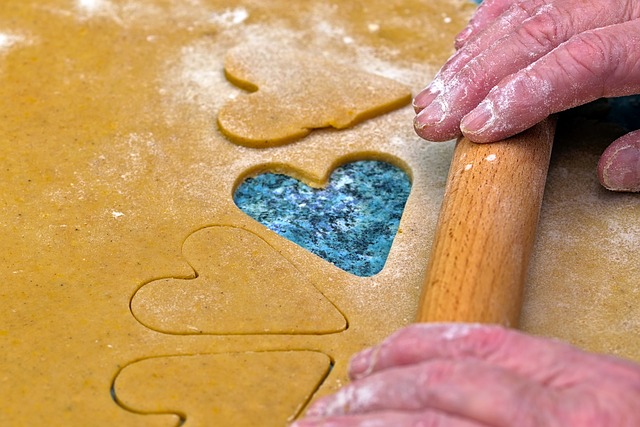The parasympathetic nervous system (PNS) is a powerful ally in promoting relaxation and countering the "fight or flight" response. Cold water immersion, like cold plunges, triggers this system, leading to reduced stress hormones, lower blood pressure, and improved mental clarity. Regular cold water therapy has been shown to enhance well-being, reduce anxiety, and improve mood, making it an effective natural strategy for managing stress and promoting relaxation.
“Unwind and discover the powerful effects of cold water immersion on your body’s stress response. In this article, we explore how a simple dip in cold water can be a game-changer for mental health and stress management. Delve into the science behind the calming effects of cold plunges, specifically their ability to activate the parasympathetic nervous system. From understanding this system’s role in stress relief to uncovering the numerous benefits of cold exposure, you’ll gain insights into why this ancient practice is gaining modern popularity as a natural remedy for anxiety and stress.”
Understanding the Parasympathetic Nervous System and Its Role in Stress Relief
The parasympathetic nervous system (PNS) is a key player in our body’s relaxation response, acting as a counterbalance to the sympathetic nervous system, which is responsible for the “fight or flight” reaction. This branch of the nervous system is often referred to as the ‘rest and digest’ system, as it promotes relaxation, aids digestion, and helps restore homeostasis within the body. When we experience stress or anxiety, the PNS steps in to calm our minds and bodies.
Cold water immersion, such as a cold plunge, has been shown to activate this calming mechanism. The sudden exposure to cold triggers the PNS to release specific neurotransmitters like acetylcholine, which slows heart rate and breathing, leading to a profound sense of relaxation. This response helps reduce stress hormones, lower blood pressure, and improve overall mental clarity and well-being. For individuals seeking natural ways to manage stress and anxiety, incorporating cold water therapy into their routine can be an effective strategy to enhance mental health and promote a state of tranquility.
Cold Water Immersion as a Trigger for Parasympathetic Activation
Cold water immersion has emerged as a powerful trigger for activating the parasympathetic nervous system, offering numerous benefits for mental health and stress management. When one subjects themselves to a cold plunge, whether it’s a quick dip in ice-cold water or a longer duration in a cold bath, the body initiates a series of physiological responses. This stimulation disrupts the sympathetic nervous system’s dominance, which is responsible for the ‘fight or flight’ response, and instead engages the parasympathetic system known for its calming effects.
The sudden exposure to cold water triggers a cascade of events. It causes blood vessels to constrict, slowing down heart rate and blood pressure. This reduction in physiological arousal sends a signal to the brain to release certain neurotransmitters and hormones that promote relaxation and well-being. As a result, individuals experience a sense of tranquility, with stress and anxiety levels decreasing significantly. Cold water therapy for mental health has gained popularity due to its ability to provide an instant yet profound calming effect, making it an accessible and effective strategy for those seeking natural remedies for stress relief.
The Scientific Basis: How Cold Plunges Impact Mental Health
The scientific basis behind cold water immersion lies in its profound impact on the nervous system. When your body is exposed to a sudden drop in temperature, as occurs during a cold plunge, it triggers a complex physiological response. Specifically, cold water therapy activates the parasympathetic nervous system, often referred to as the “rest and digest” system, which promotes relaxation and calms the mind. This activation leads to reduced stress and anxiety levels, making cold plunges an effective tool for mental health management.
Benefits of incorporating cold plunges into your routine include enhanced stress relief and improved mood. The calming effects of cold water immersion have been linked to a decrease in cortisol, often referred to as the “stress hormone.” By reducing cortisol levels, cold exposure for anxiety reduction becomes a powerful strategy. Additionally, cold water therapy stimulates the release of endorphins, natural painkillers that contribute to feelings of well-being and can significantly lower anxiety.
Benefits of Cold Plunges for Reducing Stress and Anxiety
Cold plunges, or immersing oneself in cold water, have gained attention for their potential to significantly reduce stress and anxiety levels. This ancient practice involves briefly exposing your body to frigid temperatures, typically through a quick dip in a cold lake, river, or even a special cold plunge pool. The immediate shock of the cold water triggers a powerful response from your body’s autonomic nervous system.
The calming effects of cold plunges can be attributed to the activation of the parasympathetic nervous system, which is responsible for promoting relaxation and restoring homeostasis. This process counteracts the ‘fight or flight’ response induced by stress and anxiety, allowing your mind and body to achieve a state of deep calm. Regular cold water therapy for mental health has been linked to improved mood, enhanced focus, and a reduced sense of worry and tension. Many enthusiasts report that these benefits extend beyond the immediate post-plunge experience, offering long-lasting effects on overall well-being.
Cold water immersion emerges as a powerful tool for activating the parasympathetic nervous system, offering significant potential in stress and anxiety management. By inducing a state of relaxation, cold plunges can provide lasting benefits for mental health, making it an effective natural remedy worth exploring for those seeking to calm their minds and reduce daily stresses. Incorporating this simple yet profound practice into one’s routine could be the key to unlocking a calmer, more resilient mindset.
